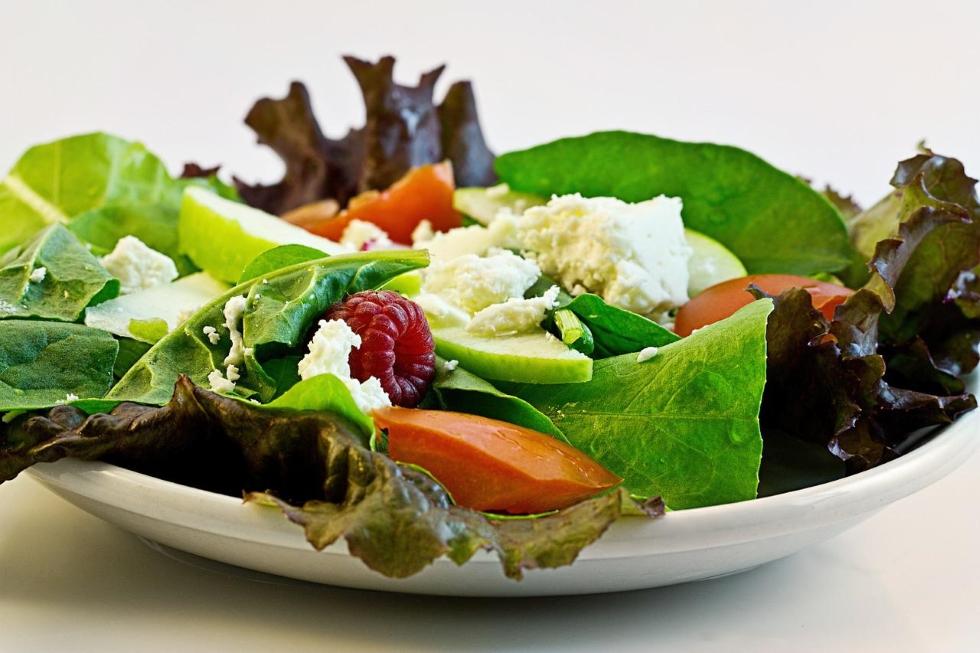Superfoods. You hear this word quite a bit these days, but have you ever looked to see what foods this word refers to or why they are called superfoods? That’s what we are going to take a look at in this post.
According to Merriam-Webster, a superfood is defined as “a food (such as salmon, broccoli, or blueberries) that is rich in compounds (such as antioxidants, fiber, or fatty acids) and considered beneficial to a person’s health.”
Note: Most superfoods are plant-based. However and unfortunately, at this time there is no standard criteria or legal definitions to classify any food as a superfood.
First—Some Terms Explained
Antioxidants
Antioxidants are natural molecules found in certain foods that help neutralize or reverse the effects of the free radicals roaming around our bodies. These free radicals are natural byproducts of making energy and it’s these same free radicals that can wreak havoc on our bodies.
Health problems that antioxidants help with are: respiratory diseases, heart disease, emphysema, Parkinson’s disease, cancer, arthritis, stroke and immune deficiency.
Catechins (a type of antioxidant)
Due to the anti-carcinogenic properties found in catechins, this compound helps protect your cells from damage.
Minerals:
These essential nutrients such as potassium, calcium and iron etc., help your body perform at its highest level.
Vitamins:
Nutrients or organic compounds found in natural, raw foods.
Fiber:
Fiber helps decrease cholesterol, prevent heart disease and control glucose in Type 2 diabetes.
The information contained in this article is for educational and informational purposes only and is not intended in any way, shape or form as health or medical advice. Always consult a physician or other qualified health provider regarding any questions you may have about a medical condition or health objectives.
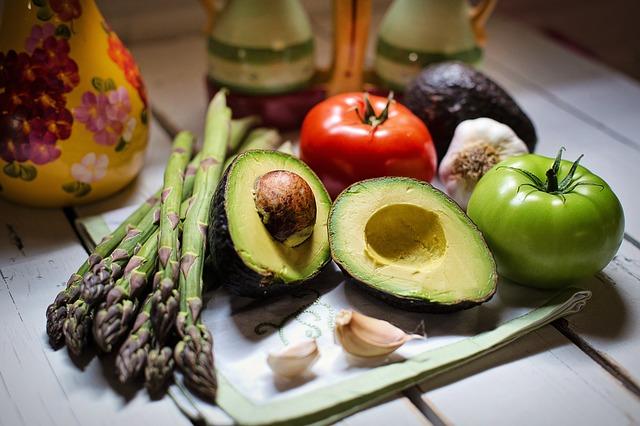
Flavonoids:
This compound used to be called vitamin P and are found in plants. Flavonoids have both anti-inflammatory and anti-carcinogenic properties.
Healthy fats:
These “good fats,” (monounsaturated and polyunsaturated fats), help lower your cholesterol, prevent heart disease and stroke.
Below are some of the most popular superfoods and a little about the benefits they provide. When including superfoods in your diet, these foods should be unprocessed and as close to their natural state, as possible, to get their best benefits.
The Superfoods
Avocado
Did you know that the avocado is a fruit, not a vegetable? This is a very popular fruit these days and is very tasty (so I’m told). Being loaded with healthy fats, fibrous carbs and micronutrients makes this a very healthy fruit. Our hearts and cardiovascular system loves this fruit.
Avocados are rich in nutrients such as heart-healthy monounsaturated fatty acids, vitamins, fiber, minerals and has more potassium than a banana. Avocados help with the following:
*Avocado extract may help relieve symptoms of arthritis
*May lower cholesterol and triglyceride levels
*Loaded with powerful antioxidants that can protect your eyes
*May help with weight loss
Beets
These root veggies get their dark-red, almost black color from betalains which is a natural plant pigment. This pigment contains antioxidants and is anti-inflammatory. Beets are packed with essential nutrients, making them a great source of fiber, folate (vitamin B9), manganese, potassium, iron, and vitamin C. They help with improved blood flow, lowering blood pressure, and increased exercise performance.
Berries
Berries contain high levels of flavonoids which may help with lowering the risk of a heart attack. Acai berries, blueberries, raspberries, tart cherries, and cranberries are just a few of the berries that would be a good idea to eat on a regular basis.
Because berries are loaded with flavonoids, the American Heart Association says they can help lower the risk of heart attacks in women. Along with the flavonoids, berries are also loaded with antioxidants, vitamins, minerals, and fiber. Other benefits of berries include:
*Help maintain brain function and improve memory
*Reduce DNA damage
*Can help fight urinary tract infections
*Reduce muscle damage after strenuous exercise
*Can lower blood pressure

Dark Leafy Greens
Most of us think of spinach, Swiss chard, kale, beet greens, collard greens, dandelion greens and various lettuces as dark leafy greens.
These greens contain large amounts of carotenoids, iron, magnesium, potassium, and calcium and are also rich in vitamins A, C, E, and K, and many B vitamins.
Is there any surprise that salads are so healthy; but skip the iceberg lettuce. Instead, load your salad with lots of dark, leafy greens.
Dark green leafy vegetables are full of fiber and nutrients which may be instrumental in preventing certain chronic diseases.
Eggs Are A Superfood
I can remember a time when eggs were a bad word, but that has changed. Not only do eggs contain protein, but they contain healthy fats, antioxidants, minerals, and vitamins.
Eggs have a nutrient called choline that we all need for good health. Choline helps prevent our DNA from becoming damaged and helps prevent diabetes. But unfortunately, many of us are low in this nutrient. Eggs would be a good start of getting more choline.
Kefir
I’ve just recently heard about this drink, and I’ve learned that it’s one of the most probiotic-rich foods out there. It’s a cultured, fermented beverage made from kefir grain and raw milk that is high in protein, B vitamins, potassium, and calcium.
However, it’s most powerful health benefit is its probiotic properties because it improves the healthy bacteria ratio in your digestive tract.
Since kefir is fermented and if you are lactose intolerant, you can still enjoy kefir and get its benefits despite the fact that it’s made from milk.

Legumes
Legumes belong to the food group that include soybeans, lentils, peanuts, peas and beans and are an excellent source of a plant-derived protein.
Due to the large amount of fiber in legumes, they help improve your digestive system. They also contain complex carbohydrates that help supply energy to your body. And because of a low glycemic index number, legumes don’t cause your blood glucose levels to rise.
Nutrients found in legumes include magnesium, iron, calcium, Vitamin B and antioxidants. These nutrients and antioxidants help with gut health and stabilize blood glucose levels.
Tip: Soak your legumes and beans in water for a day or overnight, before you cook them. This superfood contains phytates and lectins which makes it harder for your body to absorb nutrients. Soaking them before making legumes helps cut down on the phytates and lectins.
Matcha
Matcha, or powdered green tea, contains 3 times more catechins than regular brewed green tea. The natural caffeine in matcha will help keep you alert without a crash in energy levels.
Mushrooms
Mushrooms are good for you in general, but the most nutrient-dense mushroom is the shiitake mushroom. It contains tons of minerals like potassium, phosphorus and magnesium.
Research is just beginning on this superfood, however, some of the compounds found in this mushroom are anti-carcinogenic, anti-microbial and anti-inflammatory. So, make sure your next pizza has plenty of mushrooms!
Salmon (Preferably Wild Alaskan Salmon)
There are not too many other fish that equal the high nutrient value as salmon. This fish is loaded with Omega-3 fatty acids and we all need Omega-3s.
There are two reasons I’m being specific with the salmon. One is wild vs. farmed fish of any kind, which may have been given pesticides and/or antibiotics. Wild salmon has neither and is caught off the Alaskan Coast which is known for unpolluted, very clear water. No pesticides or pollutants to be found there. Can’t beat that.
The Omega-3s in the Superfood Salmon help build and maintain a healthy body. They’re key components in the structure of every cell wall in our bodies. They’re also an energy source and help keep your heart, lungs, blood vessels, and immune system in good working order.
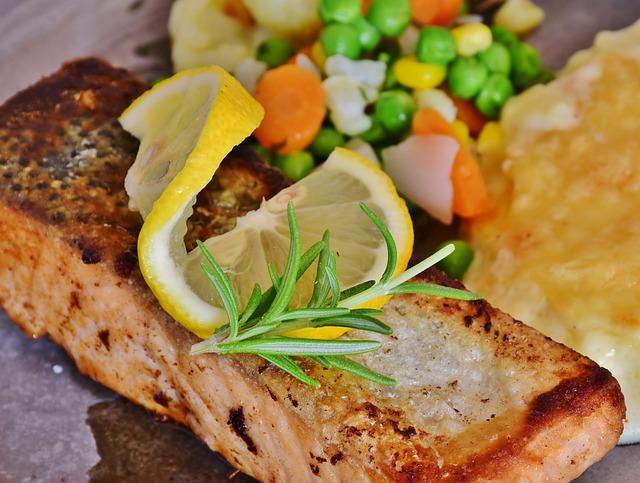
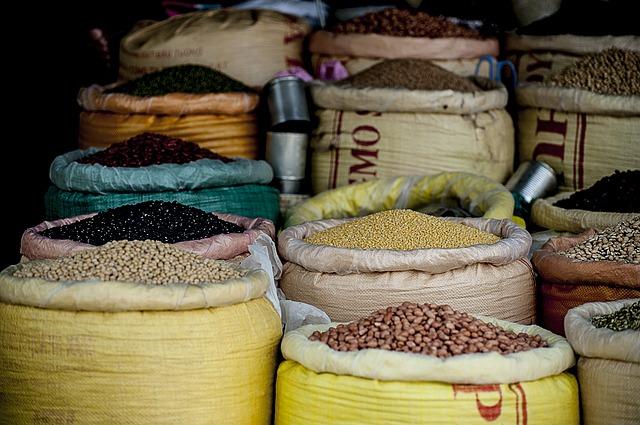
Sweet Potatoes
An excellent source of fiber, vitamin A, vitamin B6, vitamin C, iron, magnesium, and potassium. All these nutrients can help prevent a heart attack, promote immune system health, help keep you looking younger, and maintain healthy teeth, bones and skin.
Superfood sweet potatoes are naturally sweet, so they don’t require the extra butter, cream or salt that is usually added to potatoes to enhance the taste.
Tea
Tea has almost no calories, helps keep you hydrated, and is a good source of antioxidants. One of the most popular teas right now is green tea which has a high potency of antioxidants.
This popular beverage has beneficial anti-inflammatory properties and may also have an anti-arthritic affect because of the suppression of inflammation.
Superfoods Can Be A Big Help
Because of the high vitamin and mineral content, when these superfoods are mixed in with a well-balanced diet, they can keep you healthier and help your body keep diseases at bay.
These foods can improve energy levels, help with heart health, and weight loss and possibly reduce the effects of aging.
The word “superfood” is a fairly new term referring to foods that offer big time nutritional benefits for small amounts of calories. And these “super” foods are packed with vitamins, minerals, and antioxidants.
We know that the best way to get all the nutrients that we need, should be done by eating a healthy and well-balanced array of foods. However, if you seem to be someone that can’t get in enough nutrient abundant funds, superfoods can fill in the gaps.
Better still, concentrate on the following foods but remember even though superfoods are a health boost, they are not a cure-all for ailments.
Benefits of Superfoods
**Quick and easy
Superfoods are an excellent way to nourish your body with natural vitamins and minerals nutrients.
**Boost the immune system
It’s hard to keep from getting sick with everything that floats around in our air these days, but our body does its best by defending us through our immune system. So, it makes sense to make sure our immune system is provided with the nutrients it needs through our foods.
Essential vitamins such as A, C and E can be found in broccoli, almonds, citrus fruits and sunflower seeds. Found in superfoods, all these vitamins help strengthen and help maintain our immune system in good working order.
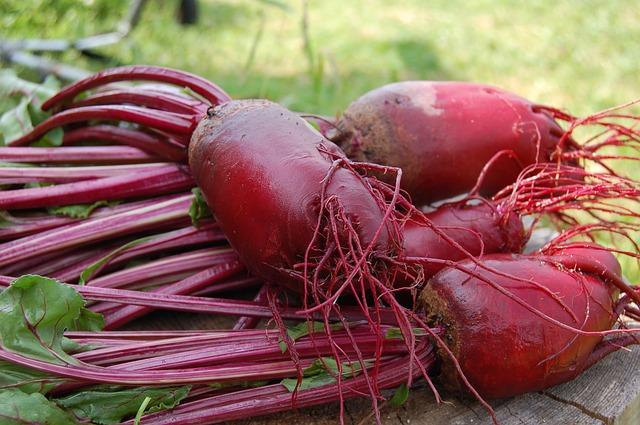
**Keep blood sugar levels in normal range
A dietary plan is good for everyone’s health, but especially so when managing diabetes. It’s good to eat low glycemic index foods to help keep blood sugars level.
This is where superfoods come into play—high nutrient and low GI index.
**Lower bad (LDL) cholesterol
An unhealthy diet can be really bad for cholesterol levels. On the other hand, a healthy diet can lower LDL cholesterol while also boosting HDL (high-density lipoprotein) cholesterol levels. Several superfoods are a rich in monounsaturated fats, fiber, and nutrients that can lower bad LDL cholesterol.
**Help With Weight Loss
It seems that the weight loss community may be (and I’m just saying maybe here) realizing that lowering your caloric count and exercising isn’t the end all and be all when it coes to losing weight. Many are beginning to see that this may not be the best approach.
Learning to eat a whole, healthy and balanced diet may be a better way to go. Most of the superfoods I’ve presented are packed with nutrients, but also lower in calories. You can eat more and still get fewer calories. Not to mention all the good vitamins, minerals, antioxidants, etc. that you will get by eating this way.
Eating foods rich in nutrients including protein, potassium, vitamin C and omega-3s can help reduce appetite and hunger levels and build muscle mass. It may take longer to lose the weight, but would certainly be healthier and give you all the benefits that come from eating this way.
**Lower blood pressure
High blood pressure or hypertension is a serious medical condition that many suffer from. HBP can significantly increase the risks of heart, brain, kidney and other diseases. According to the World Health Organization, approximately 1.13 billion people worldwide suffer from hypertension.
But the good news is you can keep this disease in check or prevent it totally with a healthy and balanced diet, rich in potassium, magnesium, and fiber. These nutrients can help keep your weight down and prevent developing high blood pressure.

Quick tips:
These tips can help you get more superfoods into your diet:
**Have a daily green or matcha tea.
**Add shredded greens to soups and stir fries.
**Try replacing your beef or poultry with salmon or tofu at least once, maybe twice a week.
**Add berries to oatmeal, cereal, salads, or baked goods. (In salads is absolutely delish)
**Make sure you have a fruit or a vegetable every time you eat meals and snacks.
**Make turmeric, cumin, oregano, ginger, clove, and cinnamon your go-to spices to raise the antioxidant content of your meals.
**Snack on nuts, seeds (especially Brazil nuts and sunflower seeds) and dried fruit (with no sugar or salt added).
**Avoid eating processed foods with sugar, sodium, additives and chemicals.
Final Thoughts
Superfoods make excellent nutrient-packed additions to a well-balanced diet and regular exercise routine.
Achieving optimal health through food and nutrition is about more than focusing on one or two of the latest food trends.
Instead, each day, try to support your good health by eating a variety of nutritious foods, in moderation and as whole as possible.
Including some, or all, of the foods on this list as part of a balanced diet can benefit your overall health and may prevent certain chronic diseases.
*****Excellent additional information on superfoods with several really good recipes.*****
Stay Awesome!
Cher
Relevant Reading:
Hair Loss After Bariatric Surgery
Health Benefits of Certain Spices
If you enjoyed my post, pin it so you’ll have it for later, then share it—It would help me increase my readership and is a wonderful compliment!!

